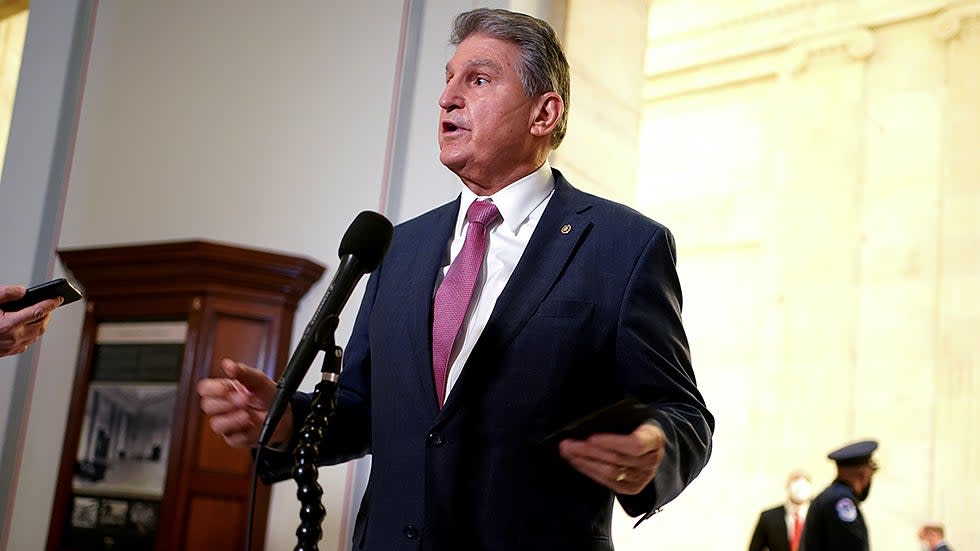Manchin defends filibuster stance amid primary threats: 'Bring it on'

- Oops!Something went wrong.Please try again later.
Sen. Joe Manchin (D-W.Va.) on Tuesday defended his opposition to changing the 60-vote legislative filibuster and told progressives threatening to primary him over the fight to "bring it on."
"I've been primaried my entire life. That would not be anything new for me. ... Bring it on," Manchin told reporters, asked about some of his colleagues not ruling out supporting a primary opponent.
Manchin's comments come as Senate Democrats are headed to defeat on their push to change the Senate filibuster in order to pass election-related legislation.
The Senate is expected to hold a vote on Wednesday to try to end debate on voting legislation that combines the Freedom to Vote Act, which would overhaul federal elections, and the John Lewis Voting Rights Advancement Act that would expand the 1965 Voting Rights Act.
But Republicans will block the bill from getting the 60 votes needed to move forward. After that happens, Senate Majority Leader Charles Schumer (D-N.Y.) will move to change the Senates rules.
Under the rules change proposal, Senate Democrats want to get rid of the 60-vote hurdle for voting legislation and move to a talking filibuster that would force opponents to speak from the floor to delay a bill, which would ultimately be able to pass by a simple majority.
While Schumer is expected to force the rules change vote, which senators said was likely to happen on Wednesday, the effort will fall short because he needs total unity from all 50 Democrats to change the rules without Republicans.
Manchin and Sen. Kyrsten Sinema (D-Ariz.) both support the 60-vote threshold required for most legislation to advance in the Senate. Sen. Mark Kelly (D-Ariz.) also hasn't said how he will vote.
"The majority of my colleagues in the Democratic caucus have changed their minds. I respect that. They have a right to change their minds. I haven't. I hope they respect that too. I've never changed my mind on the filibuster," Manchin told reporters.
Manchin argued for reporters that going to a simple majority for bills isn't in step with the Senate's history. Manchin asked questions and made a similar case in a closed-door Democratic caucus meeting on Tuesday, a source confirmed. Senate Democrats involved in the rules change disagree with him and have talked up previous rules changes as part of their pitch to him.
Manchin told reporters that "I love a talking filibuster," but reiterated that he wouldn't support getting rid of the supermajority requirement.
"That's never happened. That's never happened in the history in our country," Manchin said when asked about letting bills only need a simple majority to advance in the Senate.

